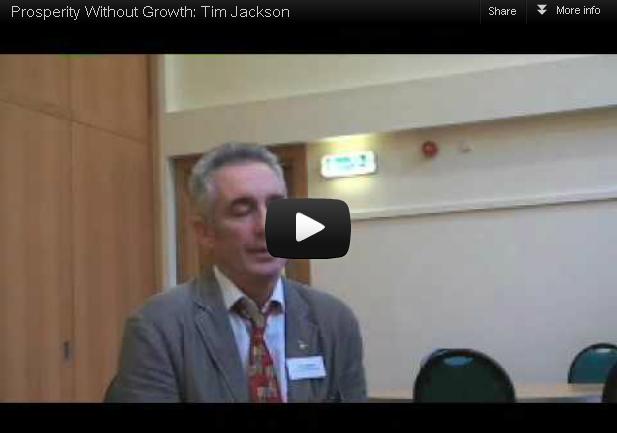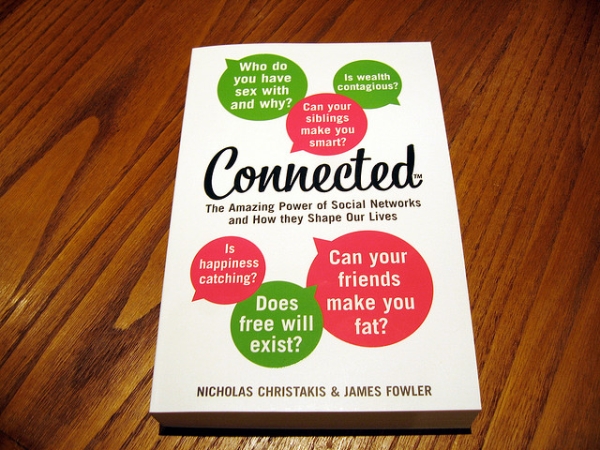


Redefining Prosperity
Prosperity – at least in economic terms – has always been defined within the remit of very narrow boundaries.> Typically it has always meant growth, a six letter word that obsesses politicians and economists. But when attempts to create growth prove counter-productive then it’s time for a rethink. The ultimate aim of growth is prosperity, yet – for the vast majority at least – it remains an elusive dream. The question that needs to be asked is: What is prosperity? And if our previous attempts to attain it have proved unsuccessful then how can it be achieved? The following excerpts are from the book Prosperity Without Growth: Economics for a finite planet, by Tim Jackson. The excerpts are quotes from Zia Sardar, a London-based scholar, writer and cultural-critic who specialises in Muslim thought, the future of Islam, futures studies and science and cultural relations. Prosperity Depends On The Society You’re In & Your Responsibility To It The good life of the good person can only be fully realised in the good society. Prosperity can only be conceived as a condition that includes obligations and responsibilities to others.” The prevailing vision of prosperity as a continually expanding economic paradise has come unravelled. Perhaps it worked better when economies were smaller and the world was less populated. But if it ever was fully fit for the purpose, it certainly isn’t now. Climate change, ecological degradation and the spectre of resource scarcity compound the problems of failing financial markets and economic recession. Short term fixes to prop up a bankrupt system aren’t good enough. Something more is needed. An essential starting point...
Your Social Network Has The Power To Influence What You Think, Want, Feel, Choose And Eventually Do
“How we feel, what we know, whom we marry, whether we fall ill, how much money we make, and whether we vote all depend on the ties that bind us. Social networks spread happiness, generosity, and love. They are always there, exerting both subtle and dramatic influence over our choices, actions, thoughts, feelings, even our desires. And our connections do not end with the people we know. Beyond our own social horizons, friends of friends of friends can start chain reactions that eventually reach us, like waves from distant lands that wash up on our shores.” Nicholas A. Christakis, a social scientist at Harvard University and James H. Fowler, a political scientist at University of California present in their book Connected: The Surprising Power of Our Social Networks and How They Shape Our Lives how people are interconnected, interdependent, and products of their societies. Watch Nicholas Christakis & James Fowler Discuss The Book Their book shows many examples of how the social networks people are in profoundly impact all areas of life: health, marriage, economy, politics and more. This post contains a few examples: Examples Of Social Networks In Health Have you ever wondered how your social environment can affect your health? Back Pain – A Culture-Bound Syndrome “The rate of lower back pain among working-age people is 10 percent in the United States, 36 percent in the United Kingdom, 62 percent in Germany, 45 percent in Denmark, and 22 percent in Hong Kong. In some ways, this varying prevalence, and the culturally specific ways in which back pain is experienced, suggest that back pain can be seen as a culture-bound syndrome –...![Malcolm Gladwell Explains Why Human Potential Is Being Squandered [PopTech Video]](http://www.mutualresponsibility.org/wp-content/uploads/2012/09/malcolm-gladwell.jpg)
Malcolm Gladwell Explains Why Human Potential Is Being Squandered [PopTech Video]
Sociologist and best-selling author, Malcolm Gladwell, uses the term “Capitalization” to discuss the abundance and scarcity as it applies to people.” More specifically, Gladwell sees “capitalization” as “the rate at which a given community capitalizes on the human potential… what percentage of those who are capable of achieving something actually achieve it.” Gladwell’s most recent book, Outliers: The Story of Success, investigates human potential, how it is squandered, how that trend can be reversed, and the reasons why some succeed so much more then others. Through his research Gladwell discovered that, Cap rates are really low. They are much lower then you think they are and that’s why I think this is such a worthy topic for investigation.” Here is a clip with highlights from Gladwell’s talk at Pop Tech on this issue [11 min.]: 3 Conditions Which Constrain The Capitalization Of Human Potential 1. Poverty. … is the obvious thing that limits the exploitation of human potential.” 2. Stupidity. … where institutions get in the way of the development of human potential.” 3. Culture. When we look at these different rates of capitalization, 20 and 30 years later, what we’re seeing is the consequence of those early ingrained cultural notions…” Why Is This Important? It is important because I think when we observe differences in how individuals succeed in the world our initial thought is always to say, to argue that that is the result of some kind of innate difference in ability. And when we look at the different rates that groups succeed we think that that reflects some underlying innate trait in the characteristics of that...
